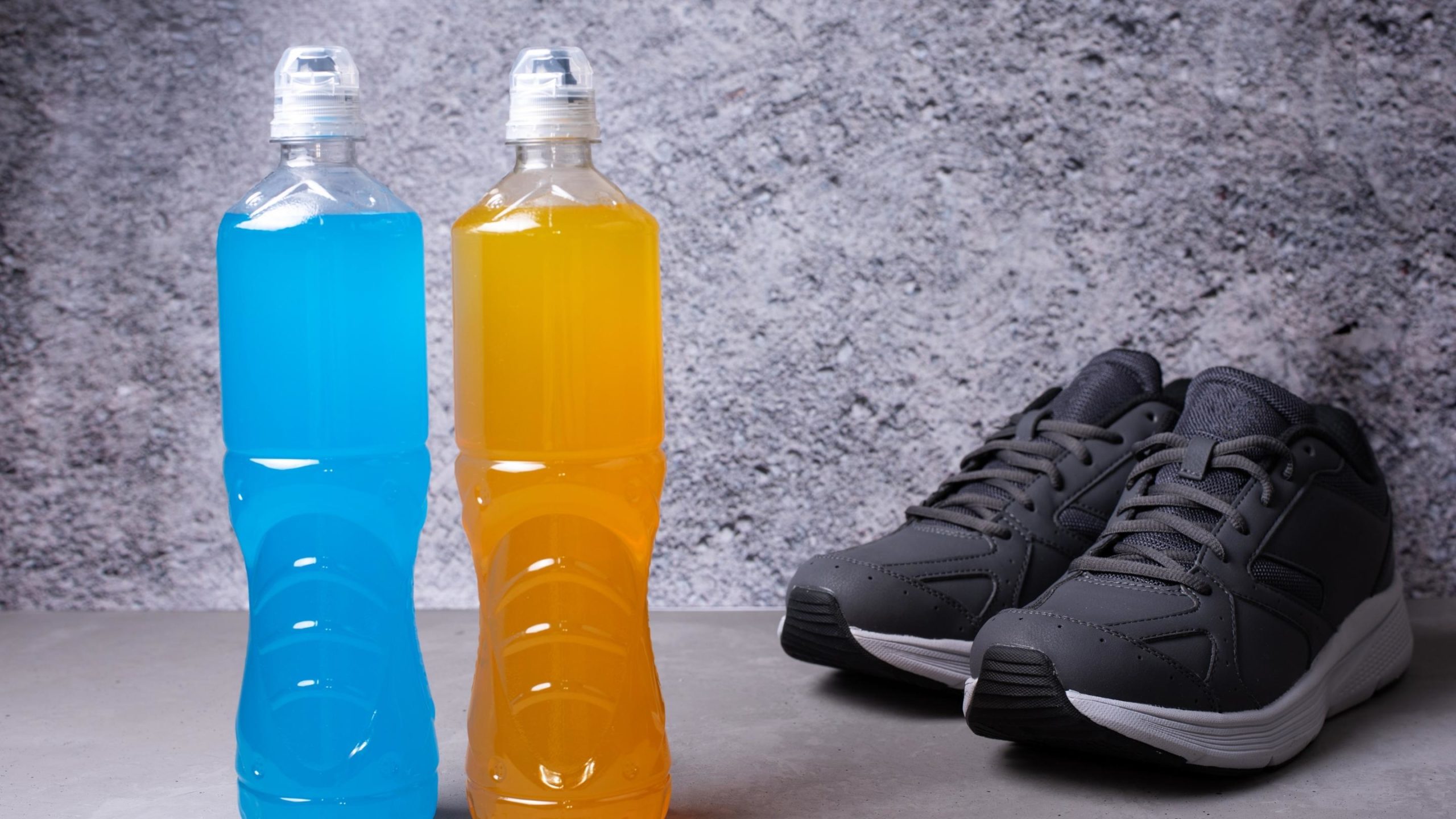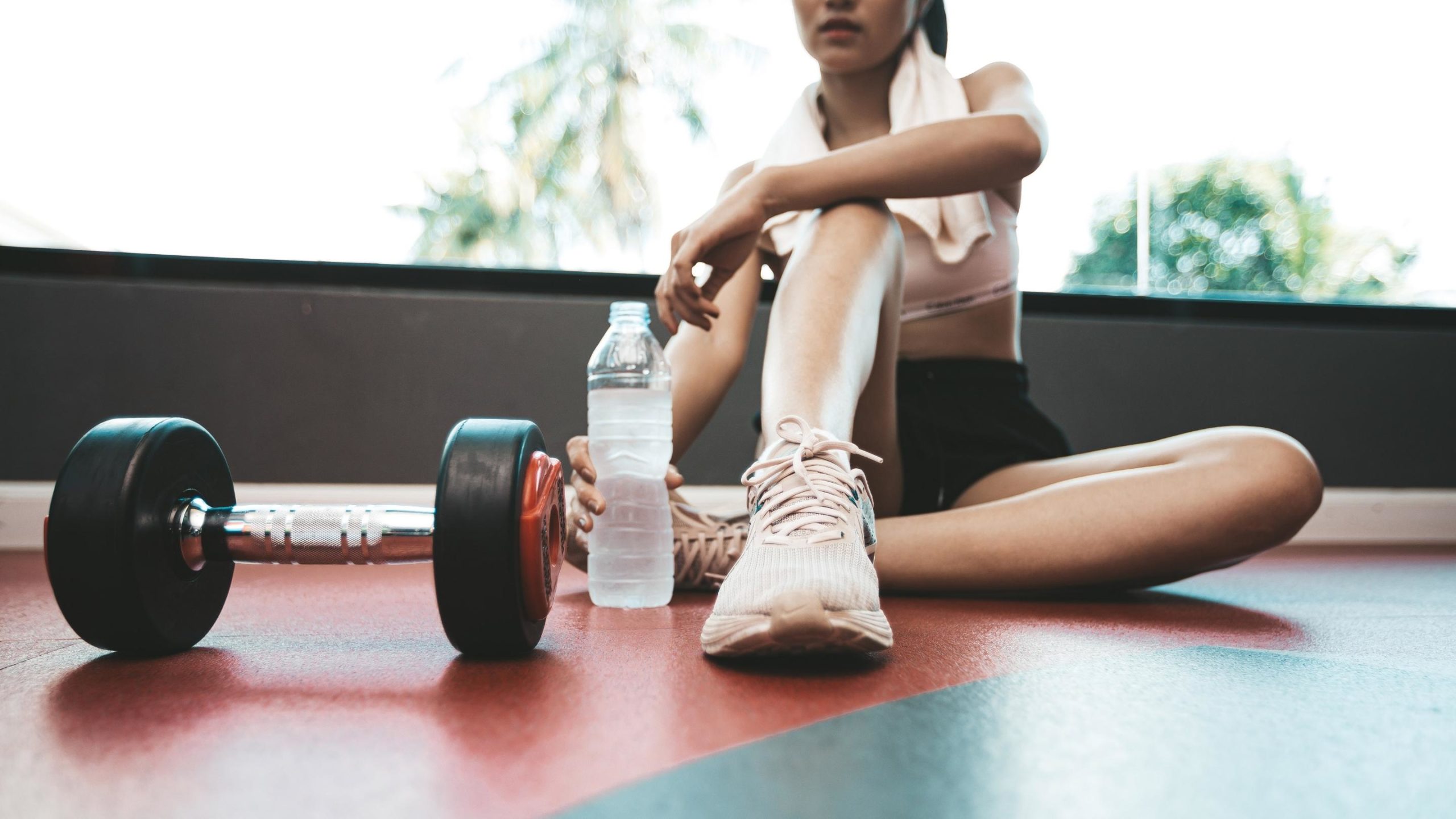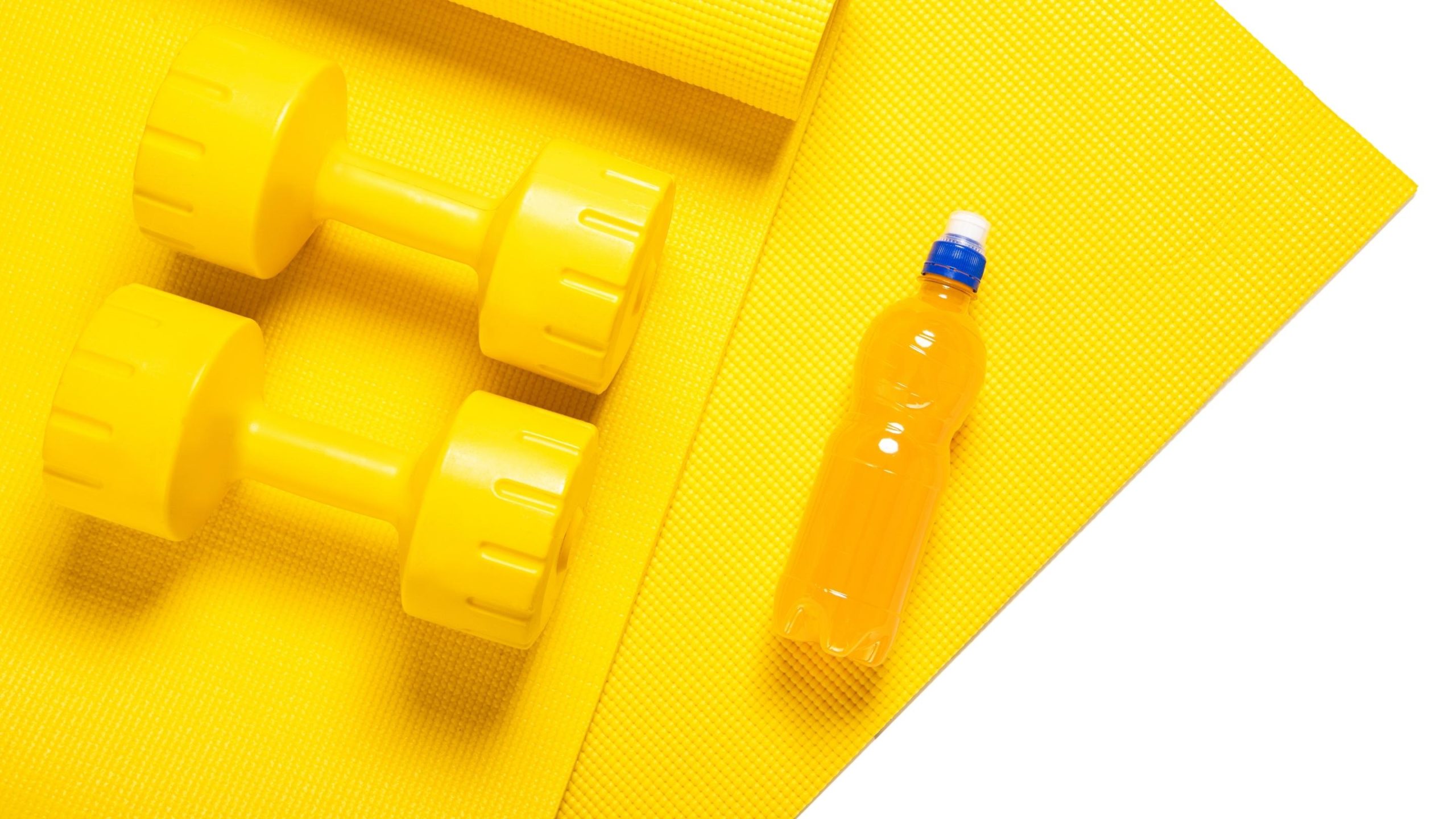Involved in many essential body functions, electrolytes are known to play important roles to help you survive and thrive. Particularly for fitness enthusiasts, optimal electrolyte intake is important to maximize exercise and recovery.
When dissolved in water, electrolytes conduct electricity which is integral in ensuring the important processes of the human body go smoothly, including nerve impulses, muscle contraction, hydration, and pH levels regulation.
Each of these processes has far-reaching implications for overall health and daily life. And determining how often you should supplement with electrolytes is key to keeping these processes functional and healthy.
Key Point: An adequate electrolyte intake is a must if you want to ensure that your body is working properly. To understand how they work, we’ll look at their beneficial effect, and the possible ramifications of electrolyte imbalance.

Table of Contents
- 3 Important Roles of Electrolytes in Your Body
- How Can You Tell If You Have an Electrolyte Deficiency?
- 7 Causes of Electrolyte Deficiencies
- When to Supplement with Electrolytes and How Much
3 Important Roles of Electrolytes in Your Body
While electrolytes do many things in the body, we’ve narrowed it down to three of the most important factors.
1. Maintains Important Body Functions
One of the roles of electrolytes is maintaining vital body functions, like keeping your internal organs healthy and functional.
When your brain sends electric signals to communicate with the cells throughout your body, you need electrolytes to ensure nerve impulses are generated. This is made possible by electrolytes that allows the flow of electrical energy.
Calcium, one of the main electrolytes, is important in muscle contraction. It is lets your muscle fibers slide together and move over each other while the muscle shortens and contracts.
Bottom Line: Electrolytes ensure that you can avoid common issues like muscle spasms and cramps.
2. Enables Proper Hydration
Whether you’re an athlete or an average individual holding a regular corporate job, you need to stay hydrated.
Drinking water alone often won’t suffice, especially if you are into rigorous activities like running. You will need to add electrolytes, particularly sodium, magnesium, potassium, and more to maintain the ideal fluid balance in your body, ensuring optimal hydration levels.
Bottom Line: Electrolytes deliver minerals and other nutrients to the body by improving the flow of fluids throughout the body.
3. Maintains Internal pH Levels
Your body requires the regulation of internal pH levels to stay healthy. The right electrolytes balance is vital in making this happen. Deviating from your ideal pH level can cause your body to malfunction in various ways.
Bottom Line: By helping your body maintain optimal pH levels, your blood won’t become too acidic or too basic–each of which has health problems associated with it.
How Can You Tell If You Have an Electrolyte Deficiency?
When there is an electrolyte imbalance in your body, you will be faced with some negative consequences. These may prove harmful to your health, and in rare cases can even be fatal.
The imbalance takes place when you lack proper hydration, whether it is due to excess heat, diarrhea, vomiting, rigorous and prolonged exercise, aging, and other factors.
You might have need to get your electrolytes measured if you experience some of the most common signs of electrolytes imbalance.
- Irregular heartbeat
- Confusion
- Fatigue
- Numbness
- Frequent muscle cramps
- Muscle weakness
- Muscle twitching
- Elevated blood pressure
- Convulsions
- Headaches
- Nervous system disorders
Bottom Line: It is highly advised that you replenish body fluids and electrolytes lost, particularly during illness and exercise. Since both of these often result in dehydration and sweating, which deplete your body’s natural stores of electrolytes.

7 Causes of Electrolyte Deficiencies
Electrolyte Deficiencies can happen for a number of reasons. Some of the possible causes of electrolyte imbalance include:
1. Sweating
As a common bodily function, sweating is important in regulating your body temperature. The process releases salt-based fluid from your sweat glands.
Sweating is the primary method by which the body excretes its natural stores of electrolytes. And so any activity which increases how much you sweat will also decrease your body’s electrolytes. This is why most causes of electrolyte imbalance can be linked to sweating or a similar form of fluid excretion.
2. Physical Activity
It is natural for your body to release water and electrolytes, especially if you are taking part in rigorous physical activities like the intense exercise for endurance athletes. But excessive periods of exercise and other strenuous activities can cause significant electrolyte loss.
3. Weather (Summer Heat and Humidity)
The summer heat can be punishing.
This brings about changes in your body temperature, which eventually leads to sweating. Being exposed in the heat of the sun for a long period of time can cause you to sweat too much, which can disrupt the electrolyte balance in your body.
4. Fever and Illness
The change in your body temperature, especially during a fever, can cause sweating. As the body fights off infection during a fever, its natural healing process involves sweating.
Sweating is the body’s way of cooling down naturally. But excessive sweating puts you in danger of developing dehydration as your body loses fluid and vital electrolytes.
Lack of fluid and electrolytes may lead you to experience sure signs of serious dehydration. This includes dizziness, headaches and confusion.
5. GI Losses
Gastrointestinal infection is another cause of electrolyte deficiency. When your gastrointestinal tract gets inflamed, you will experience vomiting and diarrhea which leads to fluid loss. You will face the danger of dehydration if you lose too much electrolytes.
6. Diet
Your diet may contribute to electrolyte imbalance, although it won’t be the sole cause. A balanced diet can aid in ensuring balanced electrolytes in your body, especially if you consume foods that contain electrolytes like dietary sodium, for example.
However, people who undergo a particular diet like whole foods diet, low-carb diet, and fasting many require more electrolytes. Failure to meet this need may cause potassium and sodium loss, increasing chances of electrolytes deficiency.
7. Aging
When you age, your homeostatic capacity is significantly reduced. This means that your body becomes less able to react and adapt to external stressors and environmental changes.
These factors can create disturbances to water and sodium balance such as reduced thirst and water intake, which can put the elderly in danger of thermal dehydration. This makes older people prone to electrolyte imbalances.
Summary: The most notable factors involved in electrolyte imbalances are sweating, exercise, weather, fever or illness, GI problems, diet, and aging.

When to Supplement with Electrolytes and How Much
Electrolytes play a vital role, regulating nerves and muscle functions while maintaining the acid-based balance in your body. And with 52% to 67% of body weight being made up of fluids, proper hydration and electrolyte intake keeps your body healthy and functional.
Drinking water alone is not enough. You should accompany sodium intake with proper hydration to maintain the balance of water in your body. If your electrolytes are too low relying on water alone can even exacerbate the problem.
So, when do you know you need to take electrolytes and how much should you take?
Summary: There are various cases when you need an electrolytes supplement, whether in the form of sports drinks, salt tablets, and other primary sources of electrolytes.
Daily Recommended Dietary Allowances
To meet the adequate essential nutrients that your body needs, you should abide by the Recommended Dietary Allowances (RDA). The RDA is usually judged by the Food and Nutrition Board, and they establish principles and guidance for good nutrition among healthy people.
When it comes to electrolytes, you need to make sure that you are following the standard RDA for its primary sources. This includes main electrolyte minerals like sodium, potassium, and more.
- The estimated RDA for sodium is based on what is needed for growth and the replacement of normal electrolyte losses.
- The amount, however, varies depending your age, reproductive status, and climate.
- Normally, you will need 115mg of sodium or 300mg of sodium chloride in a day on average without active sweating to ensure your daily sodium intake is within the recommended amount.
- For potassium, you will need an estimated 1,600 to 2,000mg of potassium per day. If you’re a heavy or salty sweater, you might need to increase your electrolyte levels.
- Electrolytes can be gained through eating a proper diet that gives you the healthy balance of electrolytes.
- This includes fruits and vegetables like bananas, spinach, seeds, nuts, and avocadoes, among others. Table salt is also another staple when it comes to electrolytes’ source. Dairy products are also known sources of electrolytes.
Key Point: If you cannot meet these RDAs, you may need to get an electrolyte supplement that will provide enough daily intake of these essential minerals. It can be in the form of sports drink, salt tablets, and other products with sodium content.
With Activity
Athletes stand to benefit greatly from electrolytes.
People who take part in a physical activity like running usually use up a lot of fluid and electrolytes when they start to sweat. Water and electrolyte loss are their biggest enemy when it comes to ensuring an optimal performance.
- That is why it is often highly recommended for endurance athletes to stay hydrated and preload with electrolytes before, during, and after their big event.
- If you are going to take part in a rigorous activity for more than an hour, you are bound to lose 1 to 2% of your body weight in fluid loss.
- This requires you to make up for sodium lost and other essential minerals by ensuring you have sufficient electrolyte intake.
- The recommended amount of sodium intake for athletes is around 600mg to 700mg every hour.
- You will also need to ensure you have enough magnesium intake, preferably 15 to 30mg per hour.
Key Point: Serious athletes will want to pre-load on electrolytes, take them during exercise, and even take them after to ensure a smooth recovery process. The exact amount you need depends on the level of exercise and how much you sweat.
In Times of Illness
Illness is a huge factor when it comes to electrolyte deficiency. If you have fever, vomiting, or diarrhea, you are bound to lose a lot of fluids.
- You might need to supplement with electrolyte products if your condition triggers possible severe dehydration.
- It is recommended that you opt for zero or lower calorie electrolyte beverages. Some of your options include Pedialyte or coconut water.
- Electrolyte drinks alone many not be sufficient when you have severe illnesses that result in great losses of fluids and electrolytes, especially if you are unable to keep electrolyte drinks or other beverages down.
- Judge your intake based on how many fluids you’re losing and any symptoms of an electrolyte imbalance.
Key Point: During times of illness, vomiting and diarrhea can cause severe dehydration, in which case hydrating with electrolyte drinks is a great solution.
When Sweating Due to too Much Heat
If you are out in the sun, whether at work or at the beach, you will experience more sweating than usual as your body releases fluids to avoid overheating. It is normally not an issue but too much sweating can lead to electrolytes loss.
- You will need to top up on your electrolytes intake when you start to feel tired, dizzy, and grumpy. This could possibly mean dehydration is setting in.
- You can consider replacing electrolytes and water lost by consuming lemon water, coconut water, or watermelon.
- If you are always exposed to too much heat, you should ensure you are meeting your sodium requirements of your RDA at the very least.
Key Point: When your body sweats, you lose fluids and your primarily lose the electrolyte, sodium. Be sure to cool off and make sure you’re at least getting the proper amounts of sodium.
As you Age
Older people become susceptible to fluid and electrolyte imbalances like sodium deficiency. Some of their bodily functions decline with age, affecting their capacity to store water in the body.
- Sense of thirst diminishes, putting elderly in danger of dehydration.
- This needs to be addressed by giving them increased electrolyte supplements.
- Generally, the elderly are recommended to take about 64 ounces of fluid daily.
- This amount should be increased if there is a rise in heat and humidity or if there are changes to their health conditions and medications like an increase in blood pressure.
Key Point: The elderly are at particular risk for dehydration, and will likely benefit the most from regular electrolyte and hydration routines.
